The Painful Paradoxes of Race
Why, Newark, N.J., Mayor Cory Booker wonders, do we only have our famous conversations about race and fear "when things go terribly wrong"? Why, he wants to know, was it impossible for George Zimmerman to look upon Trayvon Martin "as someone he could have a conversation with"?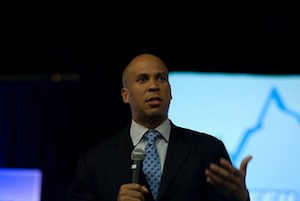
WASHINGTON — “In the jewelry store, they lock the case when I walk in,” the young African-American man wrote. “In the shoe store, they help the white man who walks in after me. In the shopping mall they follow me. … Black male: Guilty until proven innocent.”
“I have lost control of my emotions,” he declared. “Rage, Frustration, Anguish, Despondency, Fatigue, Bitterness, Animosity, Exasperation, Sadness. Emotions once suppressed, emotions once channeled, now are let loose. Why?”
The words came not in response to the George Zimmerman verdict in the Trayvon Martin killing but to the acquittal of the police officers in the Rodney King case. The author of the May 6, 1992, column in the Stanford University student newspaper: Cory Booker, now the nationally celebrated mayor of Newark and the front-runner to be the next United States senator from New Jersey.
Booker pointed me toward his angry essay more than halfway through a late breakfast on a visit here last week. He spoke the day before President Obama went to the White House briefing room to issue his powerful reminder to Americans that “Trayvon Martin could have been me 35 years ago.”
In words that resonated with what Booker had said, the president noted that “the African-American community is looking at this issue though a set of experiences and a history that doesn’t go away.”
For his part, Booker didn’t start with the Zimmerman trial but instead spoke enthusiastically about a program he had established in cooperation with the libertarian-conservative Manhattan Institute to help men released from prison become better fathers. “The right intervention,” he said, “can create radically different outcomes.”
Booker knows about crime. He described his experience of holding a young man who had just been shot, trying and failing to keep him from dying in his arms. He returned home disconsolate and washed off the young man’s blood.
His account, and Obama’s later words, put the lie to outrageous claims by right-wing talk jocks that those upset over the outcome in the Zimmerman trial have no concern for what the conservative provocateurs, in one of their newly favored sound bites, are calling “black-on-black” crime. African-American leaders, particularly mayors such as Booker, were struggling to stem violence in their own communities long before it became a convenient topic for those trying to sweep aside the profound problems raised by the Martin case.
Booker fully accepts that there is a right to self-defense. “One of the things I learned from the good cops is that there were some times when they were completely justified in pulling their weapons and killing somebody,” he said. But those good cops, he insisted, also understood that their first obligation was “to defuse a situation,” to try to prevent violence. Discussing Zimmerman, Booker added: “This so-called community watch guy, having been told by the police to back away, had so many opportunities to defuse the situation.”
Why, Booker wonders, do we only have our famous conversations about race and fear “when things go terribly wrong”? Why, he wants to know, was it impossible for Zimmerman to look upon Martin “as someone he could have a conversation with”?
This shrewd politician is under no illusions that his questions have simple answers. Yet as we neared the end of the interview, he offered a thought you might hear in a church or synagogue. “Fear is a toxic state of being,” Booker said. “You’ve got to lead with love.”
Talking to Booker was a reminder of the bundle of contradictions that is the story of race in America, precisely what Obama was underscoring when he spoke of our progress as well as our difficulties.
The young man who protested against the need to prove his innocence had earned a Rhodes scholarship and went on to become one of the country’s most prominent politicians. He has won friends across the political spectrum (which makes some liberals nervous). Most of what he had to say to me was about practical things government can do to reverse rising inequality and battle child poverty. One of the central problems of our time, he said, is “the decoupling between wage growth and economic growth,” a development that feeds so many other social challenges.
We cannot give up on trying to solve these problems any more than we can blind ourselves both to the persistence of racism and our triumphs in pushing it back. That, I think, is the message of his old column. We have come a long way, and have a long way to go.
E.J. Dionne’s e-mail address is ejdionne(at)washpost.com.
© 2013, Washington Post Writers Group
Your support matters…Independent journalism is under threat and overshadowed by heavily funded mainstream media.
You can help level the playing field. Become a member.
Your tax-deductible contribution keeps us digging beneath the headlines to give you thought-provoking, investigative reporting and analysis that unearths what's really happening- without compromise.
Give today to support our courageous, independent journalists.
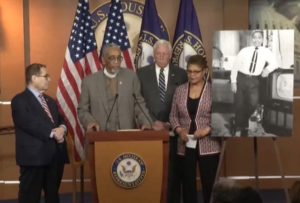
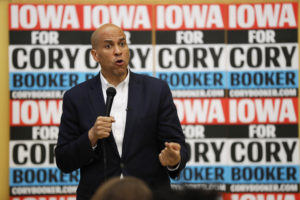
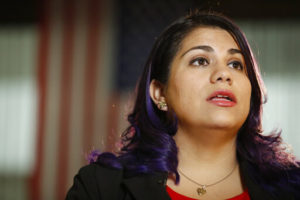

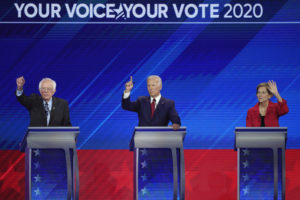
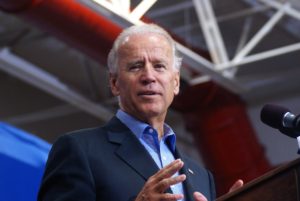
You need to be a supporter to comment.
There are currently no responses to this article.
Be the first to respond.